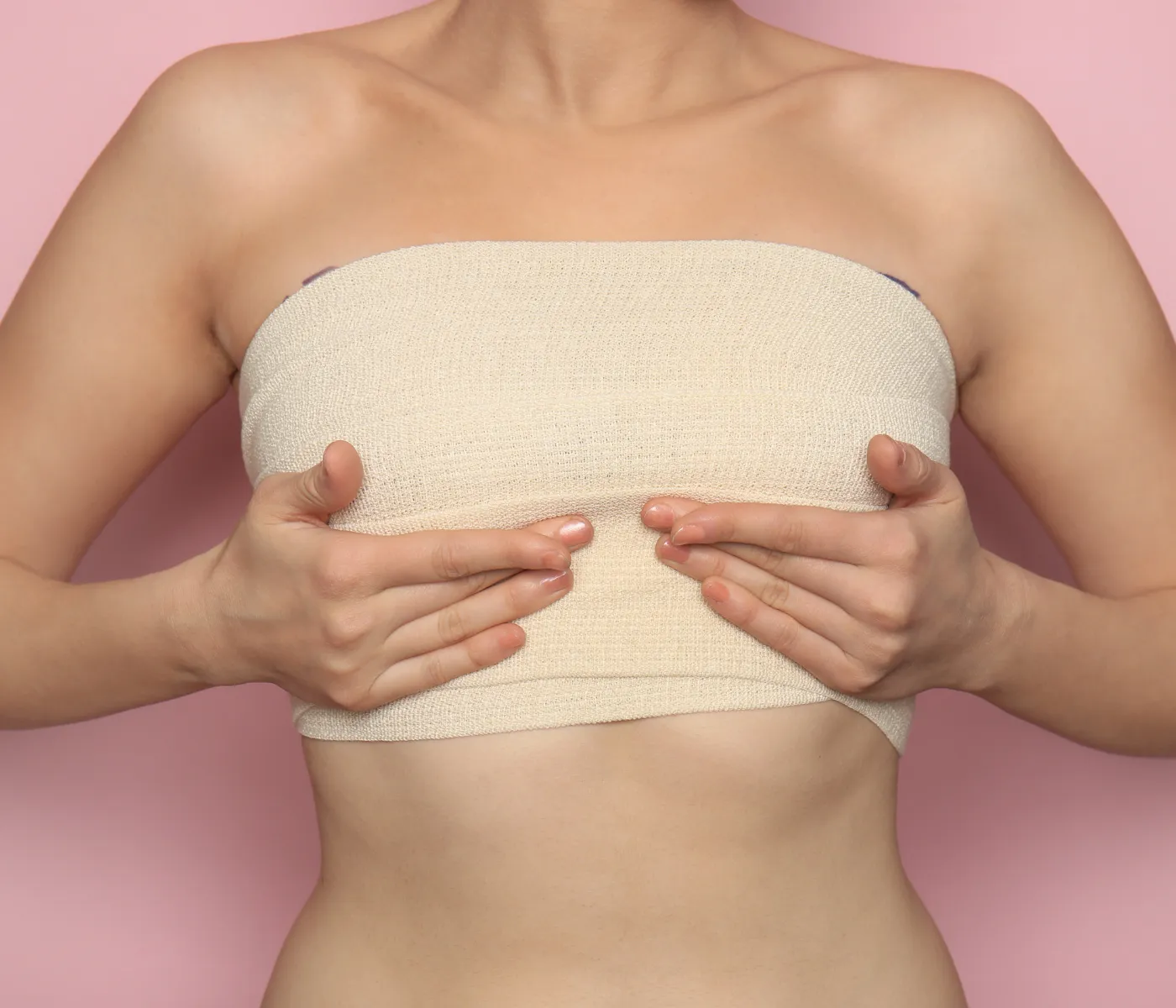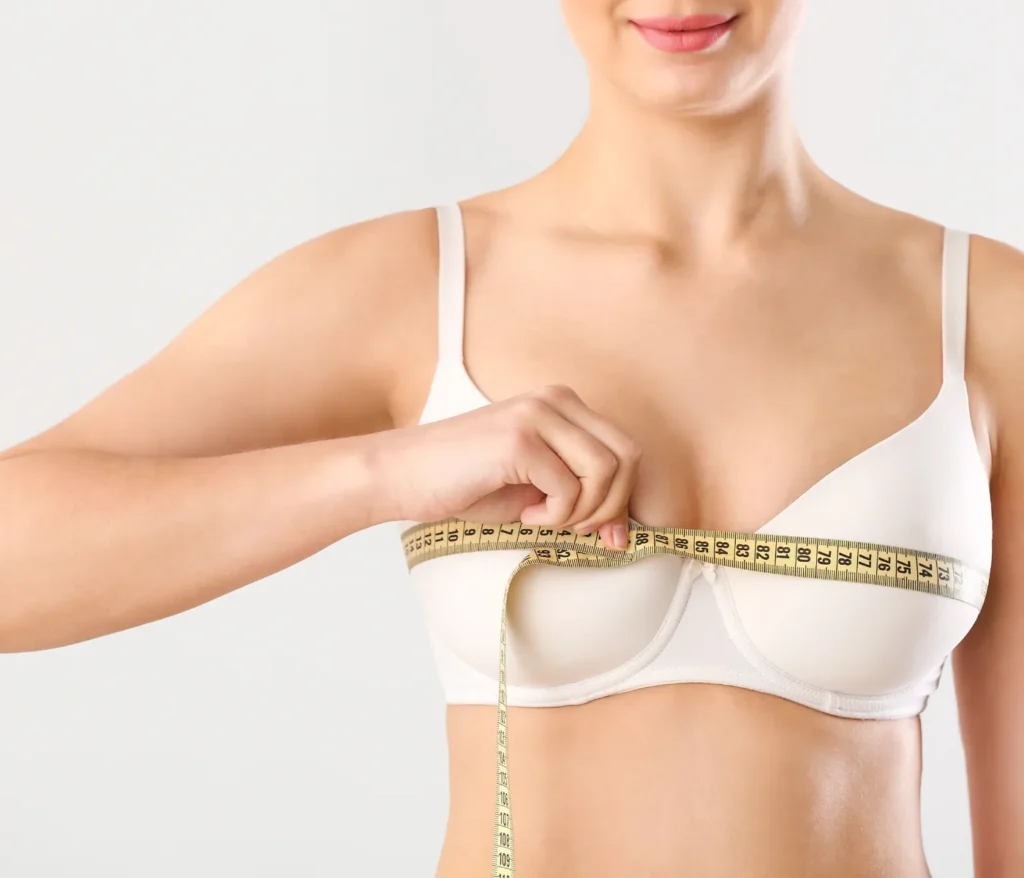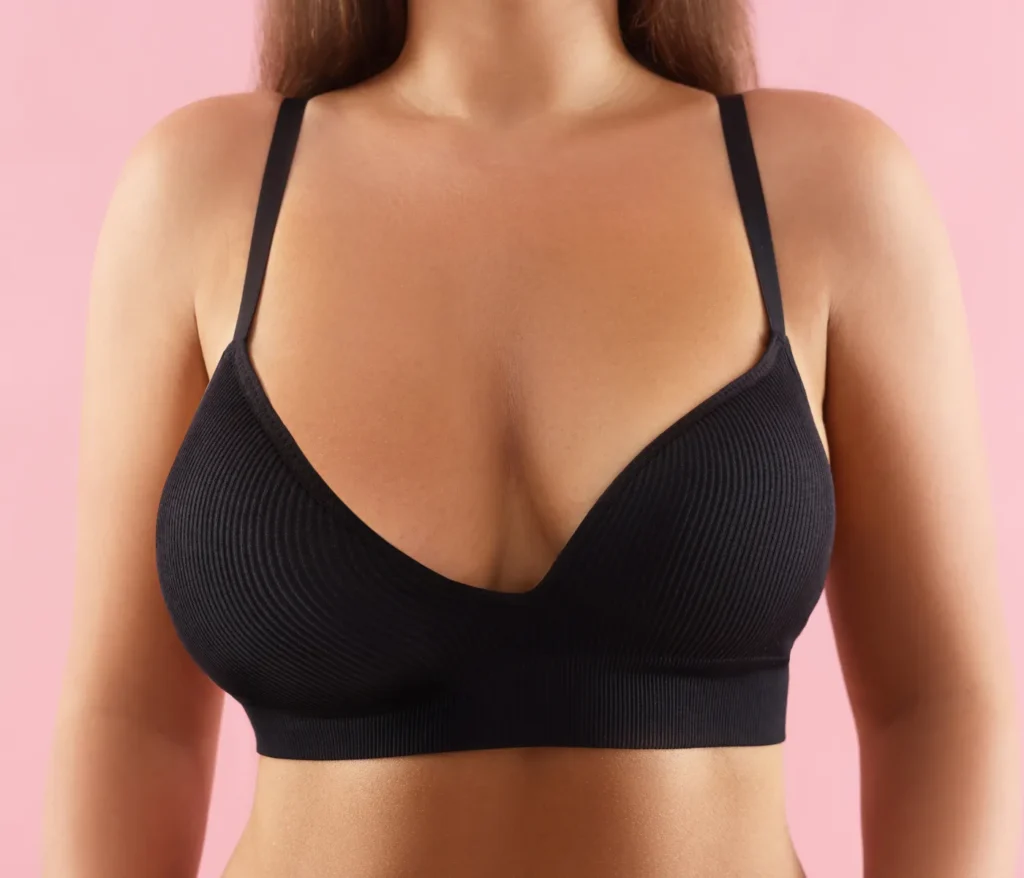Can Breasts Grow Back After Reduction Surgery? Understanding the Possibilities
By Partington Plastic Surgery on January 20, 2024 in Breast Reduction

Overly large boobs can produce aesthetic issues and sensations of bodily discomfort. So, in such cases, women quite often opt for breast reduction surgery. This routine operation usually involves the extraction of surplus breast area tissue and skin. It allows women to obtain a more convenient and attractive dimension. However, some people may have concerns “Can breasts grow back after reduction”. Let’s explore the factors that can influence tits to grow back after a decrease.
What is Surgery of Breast Reduction?
This process aims primarily at decreasing the dimension and bulk of breasts. It helps to mitigate physical discomforts. Backaches, shoulder pain, stress, and skin inflammation can be combatted. The surgical process entails getting rid of surplus fat tissues alongside glandular tissues plus skins to reform both the appearance and dimensionality of mammaries. As an outcome thereof; the residual mammary tissue will get lifted in addition to being reshaped towards producing a refreshed youthful look that’s proportional too!
Patients commonly observe a substantial decrease right after surgery, despite the swelling and healing that could potentially impact the final outcome remaining breast tissue. After complete recovery, patients should expect breasts to take their initial contour as set out during pre-surgery planning. Nonetheless, several factors may still alter post-operation breast changes.
Can Your Breasts Grow Back After Reduction?
Let’s discover the reasons for this effect.

Changes in Weight
Even after the surgical procedure, the size and shape of your tits can still be greatly affected by changes in weight. Now we will conduct a detailed analysis of how changes in body weight can affect post-surgery breast growth and view.
1. Impact of Weight Gain
Can your breasts grow back after breast reduction surgery? The breast is generally made up of adipose tissue. A boost in body weight could result in an accumulation of fat all over, encompassing the mammary region, and lead to an escalation in breast volume that may affect your desired outcome after undergoing a reduction surgery procedure. An increase in pounds can also bring about reshaping or size modification since fats are prone to redistribution throughout the boobs regardless if there was a decent quantity extracted during the previous operation; therefore added fatty tissues will have a considerable influence on their appearance post-surgery.
The stretching of the skin caused by weight gain can impact the contour and firmness of breasts. Even after undergoing surgery, once-taut skin may stretch, resulting in altered breast contour and overall appearance.
2. Impact of Weight Loss
Losing weight typically leads to a decrease in body fat, which can affect breast tissue and cause decreases in volume. Consequently, the dimension and contour accomplished through surgery may be compromised gaining weight again. Additionally, substantial weight loss could alter the tits’ firmness and contour; excess skin that was previously stretched around larger volumes might appear saggy or loose, ultimately impacting its aesthetic quality.
Weight loss may lead to changes in the form and dimension of your boobs, requiring a reevaluation. If deemed necessary, additional procedures like a breast lift or further reshaping may be needed to address these alterations caused by weight loss.

Even after getting breast reduction surgery, the size and shape of your tits may be influenced by changes in weight. If you gain weight, it can cause fat buildup and skin stretching which could affect how the results of surgery look like. On the other hand, if you lose weight, your breast volume might decrease along with firmness making additional procedures necessary. In order to keep optimal results from this procedure; maintain a healthy lifestyle that helps manage fluctuations in body mass while also consulting with surgeons for personalized guidance and support.
Hormonal Changes
Can boobs grow back after reduction? Hormonal changes can cause this effect. Breast decrease surgery may not completely shield breasts from the impact of hormonal changes on their dimension, contours, and appearance. People need to be aware of how hormones can influence breast tissue growth. This can help to avoid disappointment post-surgery. Now we will introduce to you an all-compassing overview of the impact of hormone changes on breast development after undergoing surgical intervention to reduce breast dimension.
1. Puberty and Menstrual Cycles
Adolescents go through puberty. Their bodies experience hormonal changes and prompt the emergence and expansion of breast tissue. Despite this phase happening prior to any breast reduction surgery typically, noteworthy shifts in hormones can continue to impact tits’ growth even post-procedure.
The menstrual cycle can result in temporary alterations to breast size and tenderness. These changes arise from the changing levels of estrogen and progesterone. These hormones cause slight variations in breast volume and fluid retention.
2. Being Pregnant and Lactating
The preparation of breasts for lactation is facilitated by an increase in hormone levels. This hormonal shift results in breast regrowth because milk-producing glands grow and blood flow increases.
After childbirth, the breasts could possibly remain swollen. Once nursing is done, hormone levels will stabilize and there may be a decrease in breast dimension which can occasionally cause form or firmness changes.
Fullness and engorgement may occur in the tits during breastfeeding, causing a temporary alteration to their appearance. Such changes may have implications for individuals who previously underwent breast reduction surgery as they potentially impact its results.
3. Hormonal Tools and Hormone Replacement Therapy
“Breasts grew back after reduction” – many women report. The utilization of hormonal contraceptives can cause this effect because it impacts breast tissue. A few women may notice minute alterations in their breasts’ dimensions or experience tenderness when taking these medications.

Hormone replacement therapy, which is employed to mitigate menopausal symptoms, may affect breast tissue. The administration of hormones might result in alterations in density glandular tissue or a breast augmentation in breast volume.
The influence of HRT on breast size fluctuates among individuals, with some observing alterations in either magnitude or form while others may not encounter substantial outcomes.
Breast dimension and form can be affected by hormonal changes after surgery to reduce the bust size. Menstrual cycles, pregnancy, breastfeeding, hormone replacement therapy, hormonal contraceptives, and imbalances can impact the structure of boobs. It is important to comprehend such influences in collaboration with healthcare experts to handle possible effects effectively while maintaining surgical results. Consulting your surgeon or medical practitioner for guidance and support is advisable if you have concerns about how hormones could affect your boobs.
Aging
With aging the organism is undergoing significant changes in skin elasticity, hormonal levels, and body composition. All these influence boob form and dimension. So, after breast decrease surgery the organic aging process can cause changes in breast volume.
Surgical Outcomes and Tissue Regrowth
“Do breasts grow back after reduction?” – is often a question of women. Despite removing a significant amount of tissue, breast decrease surgery cannot always guarantee that regrowth will be completely prevented. Nevertheless, it is rare for tits to revert back to their original dimension. The development of scar tissue during the healing process can alter breast texture but typically does not cause notable growth in volume again.
Managing Expectations and Maintaining Results
Post-Surgery Care
It is imperative to have routine follow-up appointments with your surgeon to monitor the healing process and handle any worries regarding breast dimension or form. Your surgery provider can offer recommendations on preserving the outcome of the procedure.
To prevent breast growth and maintain the gain of your breast reduction surgery, it is recommended to adopt a healthy way of life that comprises stabilizing body weight and effectively managing hormonal changes.
Consultation and Planning
It is vital to have a discussion with your surgeon about your objectives and expectations prior to getting breast decrease surgery. “Can your breasts grow back after reduction?” – your doctor can answer this question. Being aware of the possibilities regarding alterations in size and contour can enable you to make knowledgeable choices.
Your surgeon will customize the surgical approach to suit your specific needs and goals since every patient’s anatomy and lifestyle differ.
Although breast reduction surgery can successfully result in smaller and more balanced breasts, there are multiple factors that may lead to potential changes over time. Can breast grow back after reduction? Fluctuations in weight, shifts in hormones, pregnancy, aging stages, or regrowth of tissue could all impact the size as well as the contour of your boobs after this procedure.
Maintaining a healthy lifestyle while managing hormonal alterations and keeping open communication with your surgeon post-surgery may help prolong effective results accomplished by surgery along with addressing any arising concerns carefully. If you have queries related to handling eventualities following the operation or adjusting to transformations specific to yourself; seeking advice from skilled plastic surgeons offers absolute guidance and support satisfyingly sufficient enough.
Return to Overview